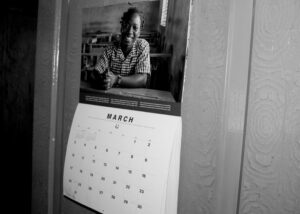Leis family ‘victimized by tragedy
Re: “Editors ‘lack . . . understanding on issues of clergy sexual abuse’ ” and “Readers disappointed in handling of the Vernon Leis matter” letters, Oct. 26, page 10.
I personally feel that the family of Vernon Leis has also been victimized by this tragic turn of events. For them to come forward is a dangerous thing because, if they only found out now, as the rest of us, how do they respond? They can’t ask Leis and get his side of the story or get angry with him for betraying their trust.
Jesus never condemned the woman at the well; he only told her to go and sin no more. And when confronted with the mob and the woman to be stoned, his message on the ground had people leaving without a stone being thrown.
Being a pastor or a pastor’s family within a church body is not easy, and they are heavily scrutinized. I know this because so many in my family tree have been, or are, there. So for us on the outside looking in, we need to be compassionate and non-judgmental, just as Jesus was. Throwing a stone in the air and not knowing where it will land is not fair to everyone involved.
Rob Martin, Elmira, Ont.
Being ‘born again’ comes with responsibilities
In John 3:3, Jesus said, “Very truly I tell you, no one can see the kingdom of God unless they are born again.”
I have given this a lot of thought. It seems to me that when one is born again, one sees things completely differently from what one is used to. One realizes more clearly what it means to love one’s neighbour as oneself. One looks at the environment differently, as something we have to preserve as a God-given gift.
I was born in 1926. We made our living on our farm, which consisted of one section of land, two cows, about 30 chickens, six sheep and two pigs to be butchered in the fall. We had all we needed. We never went on vacation. If we drove, we drove to visit friends or to shop for groceries and needed farm supplies.
Now it seems that one cannot farm unless one owns several sections of land, large farm machinery, and works day and night . . . so we can go to warmer climes for two months every winter when we retire.
How many hungry people could we feed if we stayed home for the winter?
I was an avid motorcyclist. One spring I spent $1,400 on tires and licence, just to drive my motorcycle for fun. How many people could one feed for $1,400 in a Third World country?
In Matthew 25:41-42, Jesus said of such people: “Then he will say to those on his left, ‘Depart from me, you who are cursed, into the eternal fire prepared for the devil and his angels. For I was hungry and you gave me nothing to eat, I was thirsty and you gave me nothing to drink.’”
Jack Driedger, Saskatoon
Neighbourliness is ‘a spiritual task’
We are obligated to focus on the needs of refugees, but what about those with needs already among us? In December 2014, the Edmonton Journal reported, “More than 17,000 turned away from Alberta’s women’s shelters last year.”
Helping an immigrant neighbour and her daughter out of an abusive situation has been a labour of love that has been our life for almost a year. Being a “good neighbour” requires an anointing because it is a spiritual task. Sponsoring refugee families can become an emotional issue that will require a long-term commitment.
But as Gregory Rabus is quoted as saying: “The churches are among those best equipped to help by bearing witness to God’s love, tending to physical and spiritual needs, and just being good neighbours to those around us.”
Wes Epp, Calgary







Leave a Reply
You must be logged in to post a comment.